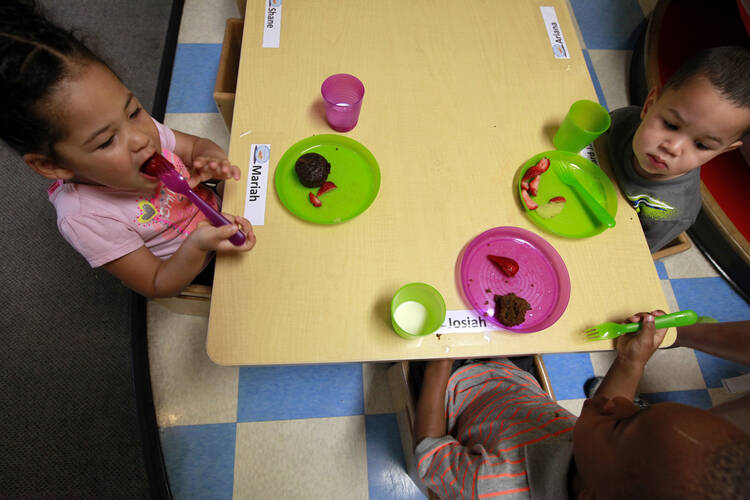The Cato Institute retreaded its 1996 headline-grabbing “welfare versus work” study today with the predictable results. Print, digital and television media are snapping up the report and regurgitating its findings with little regard to common sense, real world poverty and, of course, lies, damn lies and statistics. Cato researchers once again blithely ignore the fact that most public aid packages are put together with the goal of providing minimum sustenance and shelter for children, not for the single parent or grandparent who is typically head of the household receiving public aid; and they once again include Medicaid per capita expenses as part of the “income” received by people on public aid. (They have to, otherwise their comparisons to actual incomes would not be so dramatic.)
Few other economists would do so in comparable studies since Medicaid is a health insurance program, not something paperish unemployed, single or disabled parents can pull from their wallets to purchase food, clothing or shelter for their children. This time around the men of Cato do ’fess up from the get go that few actual people living on public aid in the actual world receive all the benefits the Cato men cunningly package into an annual income. All the same they somehow come to the bold conclusion that it is nonetheless “fair” for them to act like poor people regularly do so in making their argument that governments are discouraging employment-seeking over welfare-collecting. (I know what might better steer TANF families toward work: How about the men of Cato put their superior IQs to work devising the delivery of affordable, reliable child care to single parents—usually young mothers—so they have a fighting chance of escaping welfare for work?)
The bottom line of the revised findings is that if Cato’s theoretical public aid recipient family were somehow savvy and energetic enough to cobble together the gamut of public aid options from local, state and federal government at their disposal (just ponder the various bureaucratic and logistical obstacles in this hypothetical family’s path a moment, the DMV in hell would be easier to make it through), they would make more money than a family supported by a low-skilled breadwinner at a minimum wage job. To the men of Cato, this is not a remarkably good argument for raising the nation’s poverty-level minimum wage or rationalizing the minimum wage according to regional cost of living levels (God forbid), it is evidence that federal, state and local governments are being far too generous to those gainfully pursuing life on the public dole. The fact that few such folks are rarely ever captured in the wild does not deter the men of Cato. They're still making the case for ever more parsimonious government welfare policies even in the era of a vast economic crisis that diminished millions of Americans, although, on a more positive note, one that allowed federal leadership to demonstrate true innovation in public-aid, doling out billions to save banks, investment firms and the wealth and reputations of the nation’s most powerful people.
PICTURED: Some hardcore public aid recipients at a Catholic Charities Head Start program in Baltimore








